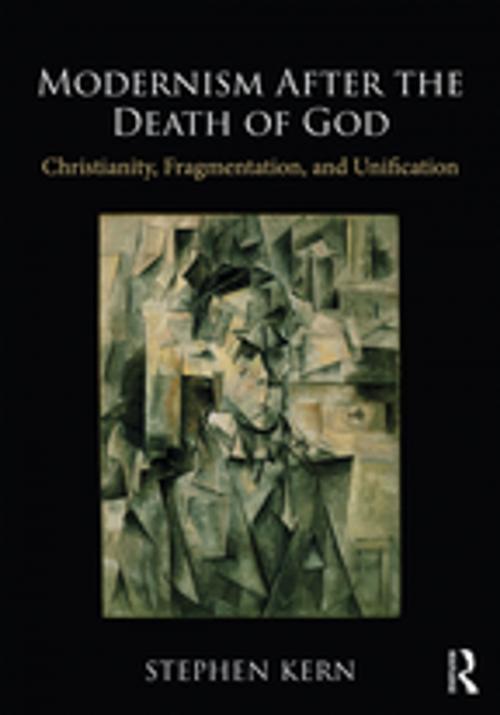Modernism After the Death of God
Christianity, Fragmentation, and Unification
Fiction & Literature, Literary Theory & Criticism, Nonfiction, Religion & Spirituality, Philosophy| Author: | Stephen Kern | ISBN: | 9781351603171 |
| Publisher: | Taylor and Francis | Publication: | November 22, 2017 |
| Imprint: | Routledge | Language: | English |
| Author: | Stephen Kern |
| ISBN: | 9781351603171 |
| Publisher: | Taylor and Francis |
| Publication: | November 22, 2017 |
| Imprint: | Routledge |
| Language: | English |
Modernism After the Death of God explores the work of seven influential modernists. Friedrich Nietzsche, James Joyce, D. H. Lawrence, André Gide, and Martin Heidegger criticized the destructive impact that they believed Christian sexual morality had had or threatened to have on their love life. Although not a Christian, Freud criticized the negative effect that Christian sexual morality had on his clinical subjects and on Western civilization, while Virginia Woolf condemned how her society was sanctioned by a patriarchal Christian authority. All seven worked to replace the loss or absence of Christian unity with non-Christian unifying projects in their respective fields of philosophy, psychiatry, or literature. The basic structure of their main contributions to modernist culture was a dynamic interaction of radical fragmentation necessitating radical unification that was always in process and never complete.
Modernism After the Death of God explores the work of seven influential modernists. Friedrich Nietzsche, James Joyce, D. H. Lawrence, André Gide, and Martin Heidegger criticized the destructive impact that they believed Christian sexual morality had had or threatened to have on their love life. Although not a Christian, Freud criticized the negative effect that Christian sexual morality had on his clinical subjects and on Western civilization, while Virginia Woolf condemned how her society was sanctioned by a patriarchal Christian authority. All seven worked to replace the loss or absence of Christian unity with non-Christian unifying projects in their respective fields of philosophy, psychiatry, or literature. The basic structure of their main contributions to modernist culture was a dynamic interaction of radical fragmentation necessitating radical unification that was always in process and never complete.















